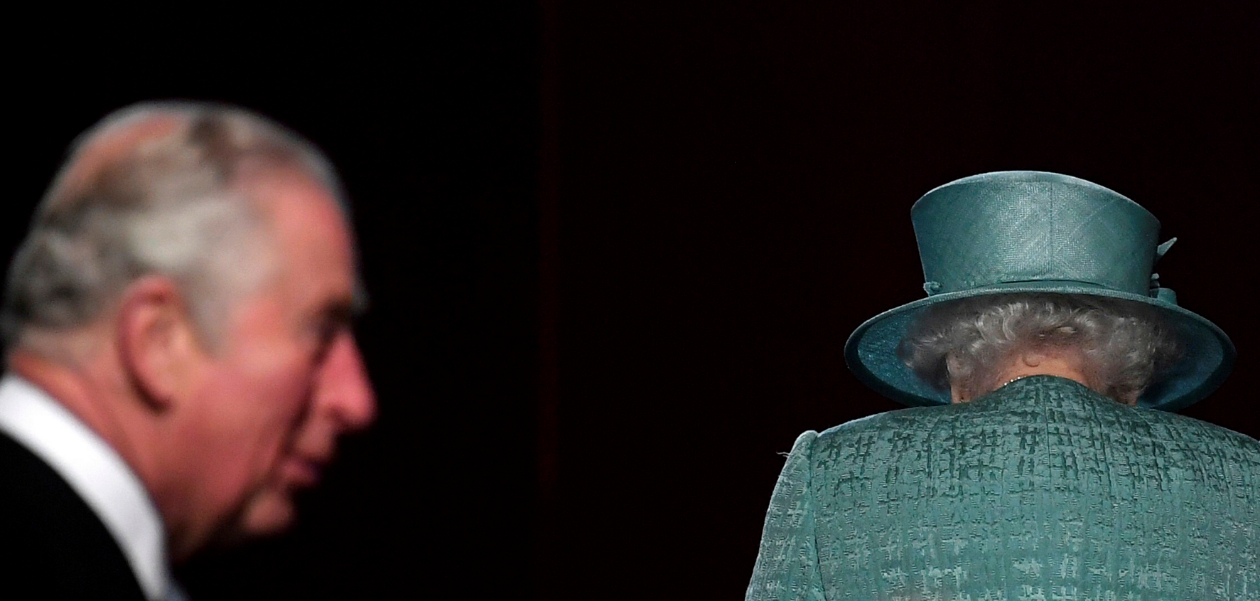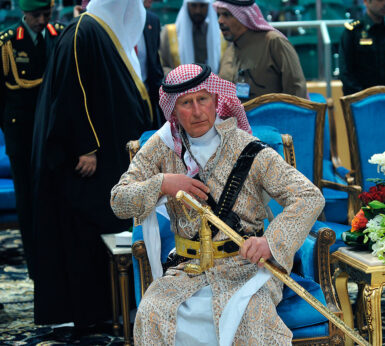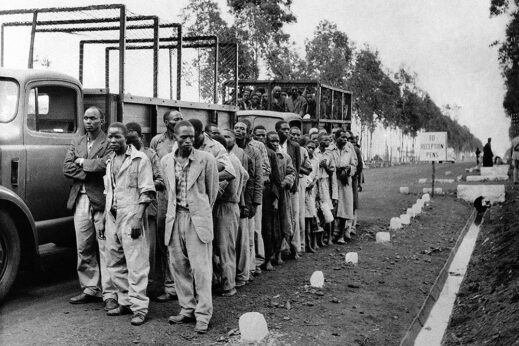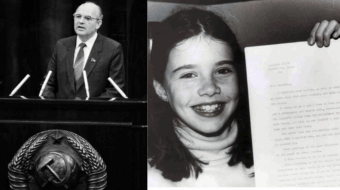
Britain’s Communist Party is not mincing any words when it comes to its published reaction to the death of Queen Elizabeth II. The party has called for ending the monarchy altogether and dissolving the ability of any of its family members from exercising the powers the monarchy currently has.
In a statement, as Elizabeth’s body was on display in Edinburgh, Scotland, the Communists declared, “Elizabeth Windsor has died leaving the kingdom she ruled over poorer, with greater disparities in wealth and income, obscene profiteering and tax evasion, and with its aggressive imperialist activities in full flow, including a proxy war in Europe.”
The statement went on to condemn not just the rule of Elizabeth II but the entire history of the British monarchy:
“The failures of the monarchy as an institution are knitted into its very fabric, and it has played a role in empire and class rule and as an active agent of the capitalist class for centuries. For this reason, it is an obstacle to progress and a ‘society of equals,’ where every citizen is valued and has the opportunity to play an active role in building communities and society.”
That part of the party’s statement was strikingly similar to the words and intent of the original U.S. Declaration of Independence in 1776, which pointed out how the British monarch at that time was a hindrance to the pursuit of happiness and a decent human life in the former colonies.
The news media in both Britain and the U.S. has spoken constantly, since Elizabeth’s death, about the royal “duties” Elizabeth allegedly performed as Britain’s “sovereign” and how Charles III, the new “sovereign,” will continue to do so. The Communist Party of Britain’s program says that, to the contrary, “popular sovereignty means the sovereignty of the people and their elected representatives in parliaments, governments, and mass movements.”
“This requires,” the party says, “the abolition of all powers and institutions relating to the monarchy, including such posts as head of state and commander-in-chief of the armed forces, together with the royal prerogative, the Privy Council, and similarly unaccountable offices of state.”
Many mistakenly believed that the calls by the Communists for the abolition of the crown are over the top since the British monarchy is nothing more than a meaningless ceremonial institution engaging in processions and gatherings where people dress up in medieval and Victorian costumes and stage changing of the guards for tourists in London. The propaganda line put forward, after Elizabeth’s death, is that the monarchy pulls people together and makes them feel good during tough and turbulent times. We have even heard pundits say that if we had something like it in America the nation would not be facing the divisive times we now are dealing with.
Parliament suspended
The idea that the monarch is harmless and doesn’t threaten democracy is as false as an idea can be. In Britain already, the death of Elizabeth has been used to suspend Parliament, the elected representatives of the people, for at least ten days.
The suspension comes just as that body was to vote on critical labor rights issues and measures to stop cuts in health care and stem the effects of double-digit inflation and the energy crisis. The suspension is also designed to head off debate on whether the country should continue pouring billions of pounds into the military budget to fight a proxy war in Ukraine.

We are witnessing the powerful collaboration of the monarchy with the ruling Conservative Tories to carry out right-wing domestic policy and the continuation of imperialist policy overseas. For its service to capitalism and imperialism, the monarchy has continued to be funded with incredible amounts of money and wealth. Someone, and it was always the British workers and workers overseas, had to pay for the millions of pounds worth of personal automobiles Elizbeth enjoyed taking out for a spin whenever she could.
All through Elizabeth’s reign, stories about the monarchy, combined with tales of the exploits of “heroic” members of the royal family, were used to deflect attention from political problems and the horrendous, often murderous, foreign interventions carried out by Britain. The ruling class always preferred “feel good” stories about Elizabeth II to the decidedly unpleasant stories about what Britain was doing to its people at home and colonial subjects overseas.
It is clear that the mainstream media, in service of the powers that be in both Britain and the U.S., see support for the British monarchy as an important tool in their arsenal of weapons to control the thinking of working-class people and their allies in both countries.
They have gone all out to use stories about the alleged personal qualities displayed by Elizabeth II to cover up the maneuvering and crimes carried out by the British monarchy and ruling political circles during the 70 years of her reign.
An objective examination of what has been done in the service of British capitalism and imperialism while she sat on the throne yields evidence of high crimes against humanity. In no way can it be said that the Queen was a bystander observing crimes she would have wished never to have happened, as some are trying to say.
In every major criminal colonial intervention since Elizabeth was crowned in 1952, she is proven to have played a major part.
Britain’s friendship with the Shah of Iran prior to and following a British-backed coup in 1953 shows the way the monarchy, and specifically Elizabeth, worked to lend legitimacy to a policy of neocolonialism that actually yielded more profits for British capitalists than they had earned during the openly colonial era that preceded the neocolonial period.
Backed by brutal police
Shah Pahlavi ruled with the backing of the notoriously brutal secret police in Iran. He was put into power by the British, with U.S. help, because the elected prime minister had nationalized the country’s oil industry.
The oil industry in Iran was one of the most profitable of Britain’s business holdings in the Middle East. While Britain, in service of its oil companies, was seizing control of Iranian oil with the help of the U.S., Elizabeth was busy making speeches about the “unending friendship” of the U.S. and Britain. Nothing like working with a “good friend” to bilk the Iranian people and fill the royal coffers.
Once the Shah took over, oil profits flowed faster than ever into Britain. It was Queen Elizabeth II, revered today by the media as a friend of democracy, who received the Shah as an official guest in 1959. She also made a celebratory state visit to Iran as the Shah’s guest in 1961. During that visit, she never went to the prisons that housed tens of thousands of tortured victims of the Shah, whose rule she was celebrating.
She visited or invited to Britain royalty from places like Egypt, Iraq, Jordan, Libya, and the Gulf emirates. Those visits and invitations, however, did little to prevent many of those fellow monarchs with whom Elizabeth wined and dined from being overthrown. The people of those countries had ideas quite different from the ideas of Elizabeth when it came to the question of who should be ruling them.
In the case of Libya, King Idris, formerly the leader of the Senussi tribe and Emir of Cyrenaica, was awarded the Grand Cross of the British Empire for his support in the defeat of German and Italian forces in North Africa during World War II.
The Queen’s cousin Earl Mountbatten (who oversaw the precipitous and disastrous partition of India in 1947) was a close friend of Idris and used to visit him in Libya and stay at his royal palace.
In return, Idris supported Britain and France during the attack on Egypt in 1956 and provided the U.S. with a major airbase near Tripoli, home to 4,600 U.S. personnel. All of this was lost in Muammar Gadhafi’s coup of 1969.
The policy of installing and supporting autocratic monarchs across the Middle East disproves any claims made today that the British crown, under Elizabeth, somehow became a friend of democracy.
Another powerful contribution Elizabeth made to the ruling class in Britain and overseas was her strong and effective endorsement of the idea of diplomacy carried out by a tiny group of ruling class supporters rather than any type of broader group representing the interests of workers and their allies.

As head of the British royal family, she played an essential role in maintaining good relations with Saudi Arabia, the United Arab Emirates, and Oman.
The British ruling class and the U.S. ruling class love this approach, wanting never to allow trade unions or any other mass organizations to get anywhere near the setting of foreign policy that would work for the people rather than for themselves.
Poured money into royal coffers
In exchange for this support by Elizabeth II, the regimes of the Middle East monarchies poured billions of dollars into the British economy, including huge invisible amounts into the royal coffers, enabling the alleged “pro-democracy” monarch to accumulate unprecedented amounts of luxury properties in Britain and around the world.
In an article this week in Morning Star, Britain’s socialist daily newspaper, there was a report about the Queen’s love of horses. She shared that love with her pal, Sheikh Mohammed bin Rashid al-Maktoum, the Emir of Dubai, whose notorious kidnapping of two of his own daughters, one carried out in the middle of the English countryside in 2000, did nothing to dent the Queen’s relationship with the tyrant.
Despite a recent court case confirming the kidnappings, he appears untroubled by any threat of arrest for what are serious crimes.
It needs to be mentioned that the Queen, or now the King, have other constitutional roles that are actually not limited in any way, leaving open dangerous possibilities.
Queen Elizabeth II and now King Charles III, is the actual, not just the ceremonial, commander-in-chief of the British armed forces, to which all soldiers swear an oath of loyalty before deployment to Afghanistan, Iraq, or anywhere else. Those wars have seen Britain join the U.S. in carrying out battles that have left many tens of thousands of people dead.
A speech given by Elizabeth II in 2009 perversely compared this part of her “duties” with the maintenance of world peace. Speaking to British troops, she said, “Wherever you are deployed in the world, you should be assured that I and the whole nation are deeply thankful for the part you play in helping to maintain peace around the globe.”
The mainstream media in Britain brags that her grandson Prince Harry is only the latest royal who served during a war in which British forces have been accused of systematic war crimes, with the deaths of hundreds of civilians in night raids.
The BBC has conducted investigations that have exposed the role of British troops in wonton murder of civilians and their detailed cover-ups of the crimes. All this is part of “keeping the peace,” if you believe Elizabeth II.
The blatant royal support for post-colonial imperialism has already been frequently part of the routine for Charles III, who is now being touted as a progressive environmentalist. Charles has visited the Gulf region many times, endorsing and enabling the continued sale of British weapons to the Saudi regime in its bloody war in Yemen that has seen tens of thousands killed in air strikes. Charles has given blessing and support to the sale and export of British weapons resulting in tens of thousands of deaths both here and in Ukraine.
Elizabeth was more than a monarch who endorsed or carried out imperialist crimes. Until well into the 1970s she watched the unfolding of Operation Legacy, a systematic effort to erase the history of colonial crimes carried out by Britain.
Operation Legacy important to Britain
Operation Legacy was particularly important to Britain in Kenya, after that East African country won its independence.

The British government, under Elizabeth’s rule, set up a network of concentration camps in Kenya where hundreds of thousands had died for the crime of supporting freedom from British rule. The Mau Mau wars saw the rounding up of many thousands who fought for independence. People in the British concentration camps were subject to horrific tortures before they were finally murdered.
Under Elizabeth, a major effort was then made to destroy the records of the crimes of the British monarchy during her reign as “sovereign” of Kenya.
The British government, defeated in court, moved to settle the Mau Mau case. On June 6, 2013, the foreign secretary, William Hague, announced in Parliament an unprecedented agreement to compensate 5,228 Kenyans who were tortured and abused during the insurrection. Each would receive about £3,800 ($4,400 USD).
“The British government recognizes that Kenyans were subject to torture and other forms of ill-treatment at the hands of the colonial administration,” Hague said. Britain “sincerely regrets that these abuses took place.” The admission and settlement, although inadequate, marked the first time Britain had admitted to carrying out torture anywhere in its former empire.
In Jamaica and elsewhere in the Caribbean, demands are increasing today that the British monarchy do more than just apologize for its legacy of support for slavery in that country for hundreds of years.
A survey in August showed that 60% of Jamaicans want to get rid of the monarchy and believe the U.K. should pay reparations for the damages caused by slavery.
The majority of the population of Jamaica are descended from slaves, stolen from Africa by the ancestors of the new king, Charles III. Muta Baruka, an activist for justice in Jamaica, is one such descendant whose family originated in what is now Ghana.
He said on MSNBC Sunday that for 70 years Elizabeth was the monarch, and during those years she presided over continuing atrocities in Africa and never apologized to anyone. “We have to continue the struggle for an apology but most important to follow that with reparations.”
The reasonable amount of reparations for the crimes of slavery and their effect on nations all across the Caribbean is too enormous to even calculate, according to most historians. It would amount to trillions of dollars when it comes to compensating the people of the countries of the Caribbean, according to Baruka.
Carolyn Harris, a historian of the British monarchy, says there is a “real grappling” with this problem by the monarchy, specifically Charles III, who she claimed, “has listened to Native Canadians” when he visited that country recently.

She offers no evidence, however, of any consideration by Charles of an official apology or reparations by a monarch that has arguably accumulated enormous wealth as a result of slavery and other repressive measures practiced by Britain in the colonies in the past and in Commonwealth countries today.
So stop the round-the-clock reports of how the world is mourning the dead monarch and getting ready for the new one. Too much important stuff is happening around the world, not the least of which is the need to stop horrific wars and defeat fascists in the U.S. And yes, the British government must apologize and begin reparations. And then waste no time in getting rid of the monarchy altogether. That will be the best way to remember Elizabeth Windsor.
As with all op-eds published by People’s World, this article reflects the opinions of its author.
The Morning Star contributed material to this article.










